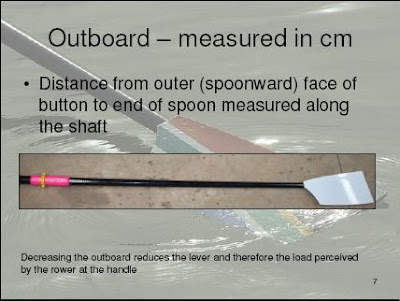Coaching Skills – Getting Parents to Work With You, Not Against You
From http://www.competitivedge.com/ppg/ppg03.html
====
INTRODUCTION
Believe it or not, 99% of all parents out there are sane and workable. If you want to be a successful coach you have to deliberately make an effort to train them. The following is a list of strategies and ideas that will help you in this endeavor.
ONE
Most parents who push, do so because they don't know how to be helpful and do not understand the effects that this has on you and their child.
TWO
You are in a position as a coach to give parents the 2 things that they want the most and that frequently causes them to say and do unhelpful things. They want their child to feel happy. They want their child to be successful.
THREE
Help parents redefine what it means to be a winner. Winning is not about coming in 1st. It's about pushing your own limits and constantly striving to do better than your best. You're a winner if you drop time off a previous best, even if you come in dead last.
FOUR
Help parents redefine competition. It is not appropriate to distract a swimmer with thoughts of beating someone else. Help parents understand that a focus on the competition usually results in slower times and performance problems. The competition is your partner and your real obstacle lies within. Train them to encourage their children to compete against themselves.
FIVE
Help refocus parents. All too often parents get their children to be concerned with the uncontrollables (UC's) in a meet (i.e., competition, crowd, race heat, water temperatures, last year's race, qualifying, etc.). Teach parents that a focus on the UC's will only get the child into performance trouble. Instead the swimmer should be encouraged to focus on what they can control (i.e., themselves).
SIX
Don't use a crisis intervention model with parents. Don't wait for problems and emotions to arise before you are forced to deal with them. Use a preventive model and commit yourself to training parents from day 1 in your program. Actively educate them with verbal and written material.
SEVEN
In writing, state clearly your coaching philosophy, coaching style, club policies and view about competition. Don't leave any of this material to their imagination. They have a right to know and you have a responsibility to clarify these for them.
EIGHT
Clearly define the roles of swimmer, coach and parent so they knows what is expected of them and how they can best help the team. For parents specifically state that coaching is something you do and they don't. Define what it means to coach so that they won't have any confusion about the matter.
NINE
Define appropriate meet/practice behavior, the do's and don'ts for both swimmer and parents and explain why this is so. Spell out clearly the consequences for violating appropriate behavior so when you intervene it doesn't come as a surprise.
TEN
Establish yourself as an expert. You know the sport, (even if you're inexperienced) and it's your job to see that things are run the way you see fit. Although parents may challenge you on this, act as if you are the expert in a non-defensive way. If you feel unsure of yourself consult regularly with other more experienced coaches.
ELEVEN
Define a common mission for the team and organization. Let parents know where you want to go and how they can help you and their children reach these goals.
TWELVE
Communicate. Keep lines of communication open between you and the parents. Be approachable. Encourage them to bring their problems to you directly. Listen to them and give them the feeling that you hear them and can understand where they are coming from, even if you don't agree with them.
THIRTEEN
Keep professional whenever possible. Do not use your emotions to respond to problem parents. If they push your buttons, keep your emotions out of your interactions with them. If you lose your professional perspective, you can't be effective.
FOURTEEN
Help parents understand the developmental perspective you have in training. Most parents don't understand why their child isn't going faster immediately and winning everything in sight. Explain to them about the long term process you are involved in with their child and the proper way to measure success with it.
FIFTEEN
Teach parents the principles of peak performance which they can then use as a guideline for what to say and do with their swimmer
This blog contains articles of interest to rowing coaches worldwide and includes topics such as rowing technique, exercise physiology, training methodology, sport psychology, strength training, endurance training, drills, sports medicine, anatomy, nutrition, training planning, biomechanics, overtraining and recovery, periodization and many others.
Thursday, September 27, 2007
Tuesday, September 25, 2007
African Coaches Conference Presentation - Rigging
Rigging For Juniors: Practical Considerations
Jamie Croly & Andrew Grant
=======
Jamie Croly & Andrew Grant
African Coaches Conference
University of Johannesburg
22 September 2007
=======
Subscribe to:
Comments (Atom)







































